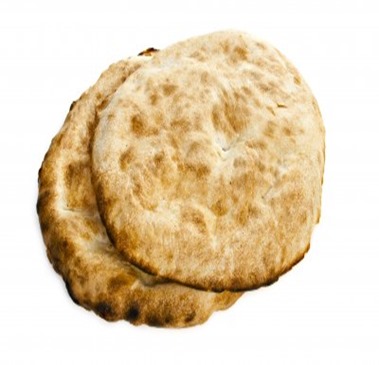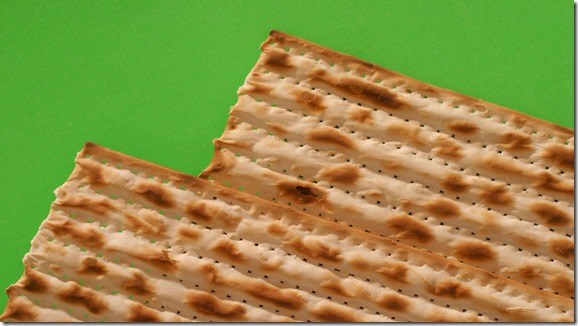Spring is in the air; the Barley is aviv and the new moon has been sighted. A new year has begun! It is almost Pesach, and we are in the final stages of searching and removing the leaven from our homes. This physical action, to remove leaven has a deep spiritual significance. Leaven is symbolic of all the issues in our lives that cause a hindrance in our relationship with Abba YHVH, and it is amazing how, while we spend time “spring cleaning,” we are confronted with this leaven in your own lives.
This search for and removal of the leaven culminates in the Pesach meal and the seven days of Unleavened Bread. We shall show you in this study how the preparation for, and the feast of Unleavened bread is also about restoring or creating intimacy between us and our Heavenly Father. I say “also” because this is only one facet of the spiritual significance of this feast.
In order to understand this significance, we shall first explore the meaning behind the symbolism of leaven in Scripture. However, let us start off by defining leaven.
What is leaven?
Leaven is “hames” in Hebrew and is defined as follows by the Dictionary of Biblical languages.
2809 IV. חָמֵץ (ḥÄ·mÄ“á¹£): n.masc.;
yeasted food, leavened foods, i.e., any food stuffs that contain a raising or expanding agent for baking (Ex 12:15; 13:3, 7; 23:18; 34:25; Lev 2:11; 6:10[EB 17]; 7:13; 23:17; Dt 16:3; Am 4:5+)1
Some scholars understand this to mean that we are to remove fermented products, like vinegar as well. The Hebrew word “hames” is also used for vinegar made from fermented wine, but it has different vowel markings. However, it is the feast of Unleavened BREAD. We, therefor remove all yeast and products containing yeast. We also remove all modern raising agents like bicarbonate of soda and baking soda as well as products made hereof. If you would like to learn more about the feast of Pesach and Unleavened bread you can read the article “How to celebrate Pesach and the Feast of Unleavened bread. ”
Now to the symbolism…
What does leaven symbolize according to Scripture?
Just some clarification before we start. To investigate the symbolism of leaven does not in any way take away from the commandment to, physically, remove leaven from our homes before the feast. It is a command not to have or eat leaven during the seven days, and we are to observe it. What we are attempting to show you is that there is a deeper spiritual significance in doing it.
I could only find one passage where it could possibly refer to a positive influence (Luk 13:20-21) depending on your interpretation.
The negative connotation to leaven indicates anything and everything that can be, or is, a hindrance in our relationship with YHVH. We shall examine various passages where this metaphor is used. It is interesting to note how the different authors of the gospels interpreted or wrote Y’shua’s words. It, nevertheless, does not contradict, on the contrary, it expands our understanding.
The teaching of men
Y’shua compared leaven to the teaching of the Pharisees and Sadducees in the Gospel of Matthew. They added to the Torah and gave the same weight to their teachings than to the commandments. This caused a hindrance, because it made the proper observance of the commandments hard to do. It is the same way in our time; adding to Torah is not only prohibited by Torah, but it can discourage people from being obedient.
Matthew 16:11–12
11 “How is it that you do not understand that I did not speak to you concerning bread? But beware of the leaven of the Pharisees and Sadducees.†12 Then they understood that He did not say to beware of the leaven of bread, but of the teaching of the Pharisees and Sadducees.
Hypocrisy
In the gospel of Luke, the leaven of the Pharisees and Saddusees is compared to hypocrisy.
Luke 12:1
1 Under these circumstances, after so many thousands of people had gathered together that they were stepping on one another, He began saying to His disciples first of all, “Beware of the leaven of the Pharisees, which is hypocrisy.
Hypocrisy is when you do not practice what you preach!
88.227 ὑποκÏίνομαι; ὑπόκÏισις, εως f: to give an impression of having certain purposes or motivations, while in reality having quite different ones—‘to pretend, to act hypocritically, pretense, hypocrisy.’3
Unbelief
Additionally, in the gospel of Mark, we see from the context that unbelief was implied.
Mark 8:15
15 And He was giving orders to them, saying, “Watch out! Beware of the leaven of the Pharisees and the leaven of Herod.â€
Unbelief is like leaven and plays an enormous role in our lives. It determines many of our choices. When we start doubting, distrust very quickly stems from that, and it then causes us to make the wrong decisions.
You can read more about how not trusting YHVH will lead to apostasy, when you click on the hyperlink.
False teaching
The next passage is along the same lines as the teaching of men we already mentioned. The apostle Paul, compared leaven with a hindrance in his letter to the Galatians. This hindrance was caused by a persuasion that did not come from YHVH. This is, in my opinion, man’s interpretation of YHVH’s Word.
Man’s interpretation is what starts cults. In a cult, the teacher is the authority, and that is dangerous. We have written a previous article about how trusting in man will lead people to fall away from the faith. This statement by Paul confirms that and shows us that it is part of the leaven that we need to get rid of.
Galatians 5:7–9
7 You were running well; who hindered you from obeying the truth? 8 This persuasion did not come from Him who calls you. 9 A little leaven leavens the whole lump of dough.
Malice and wickedness
The apostle Paul also equated leaven to malice and wickedness.
1 Corinthians 5:6–8
6 Your boasting is not good. Do you not know that a little leaven leavens the whole lump of dough? 7 Clean out the old leaven so that you may be a new lump, just as you are in fact unleavened. For Messiah our Passover also has been sacrificed. 8 Therefore let us celebrate the feast, not with old leaven, nor with the leaven of malice and wickedness, but with the unleavened bread of sincerity and truth.
What exactly is malice and wickedness? The word translated as malice is “kakias” in Greek and here is how the Louw Nida Lexicon defines it.
88.105 κακίαa, ας f: the quality of wickedness, with the implication of that which is harmful and damaging—‘wickedness, evil, badness.’ not with the yeast of evil and wickedness’ 1 Cor 5:8.3
Wickedness is “ponerias” in Greek and is defined as evil or a wicked nature.
88.108 πονηÏία, ας f: an evil, wicked nature—‘wickedness.’ ‘against those spiritual forces of wickedness in heavenly realms’ Eph 6:12. In a number of languages one can speak of ‘a wicked nature’ as ‘one who is bent on doing what is wicked’ or ‘one who habitually does what is wicked.’ 3
The leaven of malice and wickedness refers to evil, or an evil nature. We are to fear YHVH and turn away from evil (Prov 3:7). Evil is defined as follows:
8273 I. רַע (rǎʿ): adj.;
bad, evil, wicked, no good, i.e., pertaining to that which is not morally pure or good according to a proper standard, implying this evil hinders or severs a relationship to a person or principle which is proper; 1
What stands out for me about this definition is “this evil hinders or severs a relationship to a person.” This is so true. Have you noticed how far away YHVH feels to you when you have sinned?
There are a few other issues that could also be likened to leaven, because of the hindrance it can create. Unforgiveness is one of them and unrepentant sin another. We have done two detailed studies about this recently, and you can read it here: “Why we are to forgive” and “Obedience follows repentance”
When you consider each of these, we discussed above, you will understand how it could all be hindrances in our relationship with YHVH. We are for that reason to get rid of these hindrances, if we want to have an intimate relationship with Him.
I want to go so far as to say we all have our own “brand” of leaven in our lives. We all deal with different issues at different times. We are therefor to prayerfully consider the leaven in our own lives and ask YHVH’s help to remove it. This post is not intended to deal with every form of leaven, but to show you some examples from Scripture in order to help you identify the leaven in your life.
We would like you to tell us what you consider to be leaven in the comments underneath. In this way, we can learn from each other.
We have now determined what the meaning of the symbolism of leaven could be. We shall now continue by looking at leaven and sacrifices. It is interesting to note that leaven was not allowed with the grain offering.
Leaven and sacrifices
There is a prohibition from offering up in smoke that which had leaven or honey in it. 
Leviticus 2:11
11 ‘No grain offering, which you bring to YHVH, shall be made with leaven, for you shall not offer up in smoke any leaven or any honey as an offering by fire to YHVH.
I found two references in scripture where leavened bread was mentioned within the context of offerings, but in both cases, it was not burned with fire. It was eaten by the priest or by the person who brought the offering. It was presented as a wave offering.
Sacrifices were done in order to restore a relationship with YHVH or to give thanks to Him for His faithfulness (Lev 7:12). The smoke was intended to be a sweet-smelling aroma in His nostrils (Ex 29:25) and this drawing near to YHVH was always done without leaven.
The passage in Matthew caught my attention while studying about leaven and the offerings.
Matthew 5:23–24
23 “Therefore if you are presenting your offering at the altar, and there remember that your brother has something against you, 24 leave your offering there before the altar and go; first be reconciled to your brother, and then come and present your offering.
This is good advice! We are to remove the “leaven” before we draw near to YHVH.
Prayer is a form of sacrifice
You probably know that prayer is compared to a sacrifices in Scripture. Here are some references:
Psalm 141:2
2 May my prayer be counted as incense before You; The lifting up of my hands as the evening offering.
Hosea 14:1–2
1 Return, O Israel, to YHVH your Elohim, For you have stumbled because of your iniquity. 2 Take words with you and return to YHVH. Say to Him, “Take away all iniquity And receive us graciously, That we may present the fruit of our lips.
The Hebrew word “parim” means bull
7228 פַּר (pǎr): n.masc.; bull, i.e., an adolescent (one or more years old) to fully-mature male bovine1
This “bull” refers to the animal that would be presented as a sacrifice. The Masoretic text has it as “our lips as bulls” Henceforth, we can say, ” That we may present the sacrifice of our lips.” It is confirmed in Hebrews and in 1 Peter.
Hebrews 13:15
15 Through Him then, let us continually offer up a sacrifice of praise to Elohim, that is, the fruit of lips that give thanks to His name.
1 Peter 2:5
5 you also, as living stones, are being built up as a spiritual house for a holy priesthood, to offer up spiritual sacrifices acceptable to Elohim through Y’shua Messiah.
Would it be acceptable to offer up spiritual sacrifices with leaven in? Is that in accordance with His standard? Will He hear my prayer if there is wickedness in my heart?
Psalm 66:18
18 If I regard wickedness in my heart, YHVH will not hear;
Proverbs 15:8
8 The sacrifice of the wicked is an abomination to YHVH, But the prayer of the upright is His delight.
Could we be intimate with YHVH, if we have any of this “leaven” in our lives?
Proverbs 3:32
32 For the devious are an abomination to YHVH; But He is intimate with the upright.
The Hebrew word for “upright” is “yasar” and is defined as follows:
3838 I. יָשָ×ר (yÄ·šÄr): adj. [see also 3838.5];
· straight, i.e., pertaining to not being crooked (Eze 1:7);
· level, i.e., pertaining to not being bumpy with elevations or depressions (Jer 31:9);
· right, upright, i.e., what is morally innocent and proper according to a standard (1Sa 12:23); 1
YHVH is intimate with those who live according to His standard. His standard is His Word, the whole book, not just a part of it. He wants us to trust Him, fear Him and be obedient to Him. We are to be doers of His Word, not just hearers.
This is what you ought to do: Get that leaven out of your life and keep it out and get ready for an intimate relationship with YHVH. You have a choice in everything you do. Make the right one!
Y’shua’s role in restoring intimacy
We know that Y’shua fulfilled the Pesach by becoming a sacrifice for us in a metaphorical way. He is the Lamb of YHVH, who took away the sins of the world.
John 1:29
29 The next day he saw Y’shua coming to him and said, “Behold, the Lamb of Elohim who takes away the sin of the world!
Y’shua could also be compared to unleavened bread, for He was pierced for our transgressions and by His stripes we are healed. Although He was without sin, He was broken for us.
Isaiah 53:5
5 But He was pierced through for our transgressions, He was crushed for our iniquities; The chastening for our well-being fell upon Him, And by His scourging we are healed.
Because of Y’shua’s atoning sacrifice, we can now come boldly before the throne of YHVH. The veil was torn when He breathed His last. He conquered death, the ultimate penalty for sin. He became our High Priest in the likeness of Melchizedek. He is our advocate, sitting at the right hand of YHVH, interceding for us.
Hebrews 4:15–16
15 For we do not have a high priest who cannot sympathize with our weaknesses, but One who has been tempted in all things as we are, yet without sin. 16 Therefore let us draw near with confidence to the throne of grace, so that we may receive mercy and find grace to help in time of need.
When we read the book of Hebrews, we get some more understanding as to Y’shua’s role in the restoration of intimacy between us and our Heavenly Father.
Hebrews 12:1–3
1 Therefore, since we have so great a cloud of witnesses surrounding us, let us also lay aside every encumbrance and the sin which so easily entangles us, and let us run with endurance the race that is set before us, 2 fixing our eyes on Y’shua, the author and perfecter of faith, who for the joy set before Him endured the cross, despising the shame, and has sat down at the right hand of the throne of Elohim. 3 For consider Him who has endured such hostility by sinners against Himself, so that you will not grow weary and lose heart.
The word translated as “encumbrance” is “onkon” in Greek and means hindrance…
Conclusion
We are to set aside everything that serves as a hindrance, just like we set aside the leaven in this time and fix our eyes on Y’shua the author and perfecter of our faith. I do not need to say more… The author of Hebrews summed it up beautifully…
Hebrews 12:1–3
1 So then, since we are surrounded by such a great cloud of witnesses, let us, too, put aside every impediment—that is, the sin which easily hampers our forward movement—and keep running with endurance in the contest set before us, 2 looking away to the Initiator and Completer of that trusting, Yeshua—who, in exchange for obtaining the joy set before him, endured execution on a stake as a criminal, scorning the shame, and has sat down at the right hand of the throne of God.3 Yes, think about him who endured such hostility against himself from sinners, so that you won’t grow tired or become despondent. (Complete Jewish Bible)
References
- Swanson, J. (1997). Dictionary of Biblical Languages with Semantic Domains : Hebrew (Old Testament) (electronic ed.). Oak Harbor: Logos Research Systems, Inc.
- Walvoord, J. F., Zuck, R. B., & Dallas Theological Seminary. (1985). The Bible Knowledge Commentary: An Exposition of the Scriptures (Mk 8:15). Wheaton, IL: Victor Books.
- Louw, J. P., & Nida, E. A. (1996). Vol. 1: Greek-English lexicon of the New Testament: Based on semantic domains (electronic ed. of the 2nd edition.) (765). New York: United Bible Societies.











Leave a Reply to Thora Cancel reply